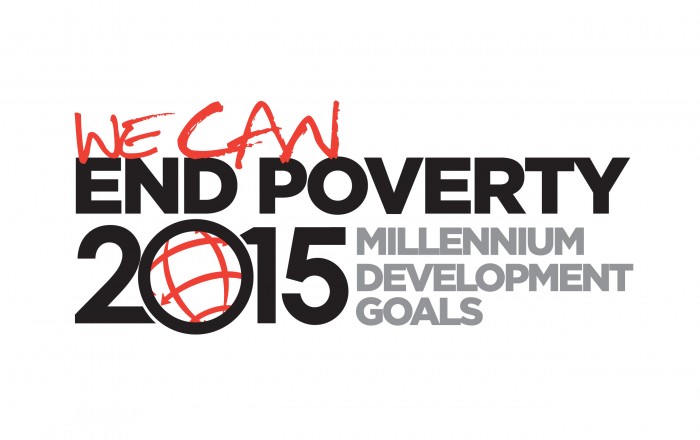Media Report

- The Washington Post reports: "[Philip Alston, the U.N.'s special rapporteur for extreme poverty and human rights] cited estimates that say China has lifted 700 million people out of poverty in the last several decades thanks to its roaring economy and what he described as 'genuine political will' to help the poor. Authorities have said they aim to lift all Chinese out of 'extreme poverty' by 2020. Alston says he believes China will meet that goal. But China also has deep income inequality, particularly between urban and rural areas, as well as a lack of means for people to report corruption and misconduct....While Xi has also mounted an anti-corruption drive snaring hundreds of officials, Alston called it a 'top-down' effort that hasn't given citizens a true voice. There are no dedicated institutions for dealing with public complaints, and government regulations going into effect next year target foreign nongovernmental organizations that advocate for human rights. The absence of those institutions will be felt greatly as more people are lifted out of extreme poverty and begin to demand more from their government, Alston said."
- TIME reports: "On Monday, China National Chemical Corp. (ChemChina)received approval from U.S. national-security officials for its $43 billion takeover of Swiss agrochemical company Syngenta AG. Although the deal still needs to be reviewed by antitrust regulators worldwide, getting the Committee on Foreign Investment in the U.S. (CFIUS) the green light was seen as the final hurdle for what looks like the biggest Chinese overseas acquisition of all time....The deal has been controversial in the U.S. for national-security implications....But the deal has arguably been more controversial in China: Syngenta has pioneered the manufacture of genetically modified (GMO) crops, and ChemChina's interest is seen as spurred by the Beijing government eyeing Syngenta's valuable GMO-seed patents. However, the Chinese public remains vehemently against GMO."
- The Wall Street Journal comments: "In a challenge to China's claim to almost the entire so-called South China Sea, Indonesia announced last week that it will designate the waters off its northern coast, around the Natuna and Anambas islands, as the 'Natuna Sea.' This is more than just petty nationalism. It's a helpful marker that the term 'South China Sea' is a recent invention with no basis in history....'The South China Sea, as the name indicates, is a sea area which belongs to China,' declared Chinese Vice Admiral Yuan Yubai recently, adding that the sea has been Chinese since the Han dynasty 2,000 years ago. In fact, barely any Chinese ventured there before 960, when the Song dynasty began....'China Sea' only came into general use in Western maps after 1800, possibly as a response to the surge in direct trade between Europe and China. But 'South China Sea' only came into use in the 1930s, to differentiate it from 'East China Sea.' Until that time, Western maps had simply translated the latter from the Chinese 'East Sea.'"
Calendar
- 2016-08-22 China slams U.S.-South Korea military drills even as it stages naval war games of its own
- 2016-08-21 Chhines Ships, Planes Hold War Games in Sea of Japan
- 2016-08-19 Rio 2016: China Rethinks Gold Medal Pursuit at Olympics
- 2016-08-18 China’s Pollution Deaths to Linger After Air Clears, Study Finds
- 2016-08-17 China, ASEAN aim to complete framework of South China Sea rules next year
- 2016-08-16 UK’s May reassures China after nuclear power plant delay
- 2016-08-15 China says no South China Sea at G-20, US urges transparency
- 2016-08-14 China to use tougher environmental standards to tackle capacity glut
- 2016-08-12 How the China Shock, Deep and Swift, Spurred the Rise of Trump
- 2016-08-11 Here’s how the South China Sea ruling affects U.S. interests
News
- ABC News Philippines Expects Talks With China on Sea Feud This Year
- TIME U.S. Approval of Syngenta Deal Brings GMO Food a Step Closer to China
- The Washington Post UN envoy: China must give public voice to stamp out poverty
- The Washington Post U.S. antimissile battery could curb China's willingness to get tough on Pyongyang
- Reuters Exclusive: China's richest man set to seal two billion-dollar U.S. film deals
- The New York Times Man Sought by China Settles Case in New Zealand for $31M
- Bloomberg Business China's Best Bank Called 'Mirage' of Shadow Lending
- Reuters Saudi Arabia to discuss energy cooperation with China, Japan - SPA
- The Wall Street Journal Powerful U.S. Panel Clears Chinese Takeover of Syngenta
- The New York Times China's Crackdown on Dissent Could Lead to Unrest, U.N. Adviser Says
- The Wall Street Journal A New Measure for China's Economy: The 'Repression Index'
- Bloomberg Markets Using Chinese Money, a Hedge-Fund Startup Bets Big in Treasuries
- The Financial Times UN official criticises China over 'shrinking space' for human rights
Commentary
- The Wall Street Journal The Misnomer of the South China Sea
- The New York Times: Sinosphere Firing of Teacher Battling Cancer Prompts an Outcry in China
- The National Interest A Radical Solution for China and the Philippines: Share the South China Sea
- The Diplomat For a Grand Bargain with China
- The Wall Street Journal: China Real Time A Chinese Central Banker's Obsession With Fiscal Policies, Aversion to Low Rates
- Forbes China's Two-Tier Economy Summed Up In Property Prices
- The New York Times South China Sea as a Chinese Lake
- The National Interest Who Wins a War in East Asia?
